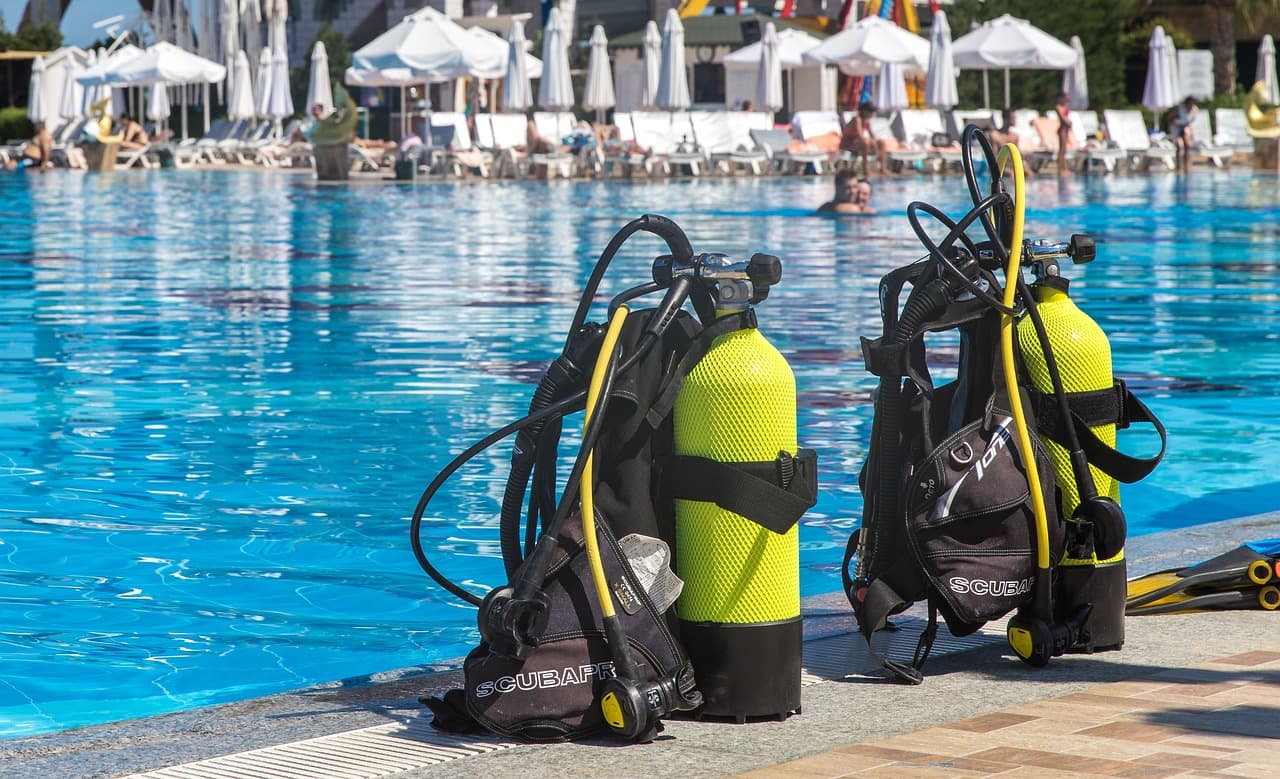Essential Scuba Diving Tips for Beginners: A Guide to Your First Dive
Discover essential scuba diving tips for beginners, including the importance of swimming skills, and follow our 7 tips to ensure a safe and enjoyable first diving experience. Learn how to never hold your breath, equalize your ears, clear your mask, find your regulator, operate your BCD, understand basic hand signals, check your air, and stay hydrated between dives.
Posted by
Related reading
Conquering Diving Anxiety: 5 Tips to Dive Confidently
Discover effective strategies to manage and overcome fear and anxiety in scuba diving. Learn about the importance of muscle memory, diaphragmatic breathing, and practical tips to enhance your confidence and enjoyment underwater.
10 Dive Shop Red Flags - DiveBusters Adds Security Measures For Safety
Choosing a safe and reliable dive shop is crucial for an enjoyable diving experience. Discover the top 10 red flags to watch out for and learn how DiveBusters helps you avoid them. From rating dive shops and ensuring cost transparency to validating professional certifications, DiveBusters integrates security measures to keep you safe. Dive confidently knowing DiveBusters has your back with detailed reviews and reliable information. Start diving safely soon with DiveBusters.

What is scuba diving
Scuba diving is an exhilarating underwater adventure that allows you to explore the beauty of the ocean. However, it is crucial to understand that swimming skills are required for scuba diving. Being comfortable in the water and having basic swimming abilities ensure that you can handle the physical demands of diving and respond effectively in case of emergencies.
7 tips for starting scuba Diving
For first-time scuba divers, here are seven essential tips to help you have a safe and enjoyable experience:
1. Never Hold Your Breath:
Always breathe continuously and never hold your breath while scuba diving to prevent lung injuries.
2. Equalize Your Ears:
Equalize your ears frequently as you descend to avoid discomfort and potential injury from pressure changes.
3. Clear Your Mask:
Learn how to clear your mask of water while underwater to maintain clear vision and comfort.
4. Find Your Regulator:
Practice retrieving your regulator if it gets dislodged to ensure you can continue breathing safely.
5. Operate Your BCD:
Understand how to use your Buoyancy Control Device (BCD) to maintain neutral buoyancy and control your position in the water.
6. Know Basic Hand Signals:
Familiarize yourself with basic hand signals to communicate effectively with your dive buddy and instructor underwater.
- Thumbs down: Decend
- Thumbs up: Ascend
- Hand up: Stop
- Ok sign (circle): I'm ok
- Point to ear: Ear trouble
7. Check Your Air:
Regularly monitor your air supply to ensure you have enough air for your dive and return.
8. Stay Hydrated Between Dives:
Drink plenty of water to stay hydrated, as dehydration can be a risk factor during and after diving.